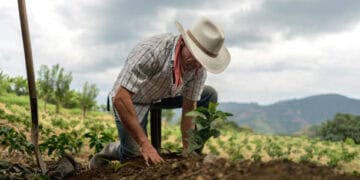Starbucks is currently facing a lawsuit alleging that the company has misled consumers about the ethical sourcing of its coffee and tea. The lawsuit was filed by the National Consumers League (NCL) in the Superior Court of the District of Columbia. It claims that Starbucks relies on farms and cooperatives involved in labor and human rights violations, contradicting its claims of “100% ethical” sourcing.
The NCL’s complaint seeks to prevent Starbucks from continuing what it considers deceptive advertising practices and to compel the company to launch a corrective advertising campaign. Starbucks has responded to the lawsuit, stating that it intends to “aggressively defend against the asserted claims” related to its ethical sourcing commitments. Starbucks has long promoted its Coffee and Farmer Equity (C.A.F.E.) Practices, a set of ethical sourcing standards established in 2004. These standards are designed to assess and verify farms on various economic, social, and environmental criteria, aiming to ensure a sustainable and ethically sourced coffee supply.
Despite these efforts, the NCL cites several instances of alleged poor labor practices associated with Starbucks’ supply chain. One such instance includes a 2022 complaint by the Brazilian labor prosecutor, which described working conditions at the Cooxupe collective in Brazil as “analogous to slavery,” highlighting excessive work hours and the physical burden of carrying heavy coffee sacks.
The lawsuit also references additional investigations, including a BBC report on sexual abuse at the James Finlay plantation in Kenya and a U.K. news program that discussed child labor on coffee farms in Guatemala. Starbucks has taken actions in response to these incidents, including suspending relationships with implicated suppliers and conducting investigations to ensure compliance with its ethical sourcing standards.
Starbucks maintains that it takes allegations of labor abuses seriously and is committed to ensuring that its supply chain adheres to the company’s ethical sourcing standards and Global Human Rights Statement. The company emphasizes its commitment to regular supply chain verifications and working closely with business partners to uphold these standards.
Discover top supply chain news stories at The Supply Chain Report. For international trade resources, head to ADAMftd.com.
#StarbucksLawsuit #EthicalSourcing #ConsumerRights #NationalConsumersLeague #CafEPractices #LaborAbuses #SustainableCoffee #SupplyChainIntegrity #HumanRights #DeceptiveAdvertising
















